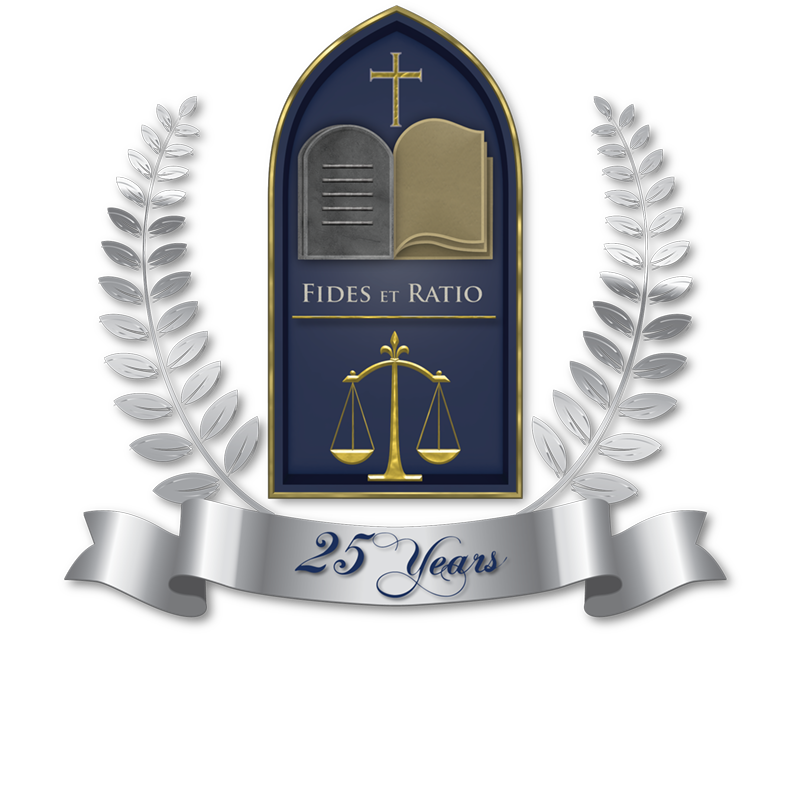Is Law School Difficult?
If you’re considering law school, you might wonder, “Is law school hard?” It’s a question that many prospective law students ask, and the answer isn’t straightforward. Law school can be a challenging experience, but with the right approach, it can also be incredibly rewarding. From coursework to networking, there are many facets to succeeding in law school, but if you’re willing to do the work, you can make it happen.
At Ave Maria School of Law, we’re dedicated to providing a rigorous yet supportive legal education grounded in the Catholic intellectual tradition. We understand the demands of law school can be daunting, but we’re here to offer tips and insights to help you thrive. Keep reading to learn more about what makes law school challenging and strategies for success.
How Hard is Law School?
Many prospective law students wonder about this question. The answer is complex, as it varies for everyone. While some may find it challenging, others may breeze through with ease. It ultimately depends on various factors, such as your study habits, the law school you attend, your work experience, and your ability to manage your time.
What are the Biggest Challenges in Law School?
Facing and overcoming obstacles is an integral part of the journey. Some of the biggest challenges in law school include managing a heavy workload, navigating the competitive atmosphere, and balancing personal commitments with academic demands. It can sometimes be overwhelming, but success is achievable with a steadfast mindset, dedication, and support from peers, professors, and advisors.
At Ave Maria School of Law, we understand the challenges of law school, so we prioritize providing a supportive environment for our students. Our faculty and staff at Ave Maria School of Law are committed to providing individualized attention and support to ensure each student’s success. So, if you’re up for the challenge, consider joining our community of aspiring lawyers and start paving your path toward a successful career in law.
Heavy Workloads
One thing you’ll quickly realize about law school is that it’s not something you can coast through without effort.
Law school demands an intense amount of reading, research, and writing. Students must digest massive amounts of information from textbooks, casebooks, and supplementary materials in preparation for classes, exams, and assignments. And attending class requires a level of intensity and focus that you may not have experienced in undergrad or even many master’s programs. Last-minute cramming will not suffice when it comes to catching up on readings in law school.
It’s vital to re-prioritize life while in law school and allocate enough time to studying, completing assignments, and participating in extracurricular activities. Remember to factor in some getaway time for self-care, whether it’s exercise, reading, or spending time with loved ones. This will help you stay refreshed and motivated throughout your studies.
Having the Correct Answer is Not Always Easy
One of the biggest challenges law school presents is the pressure to always have the correct answer. It’s not as easy as it may seem, and this pressure can often lead to anxiety and stress. As a law student, you may prepare for hours and still not know the answer to a question. This is normal, and it’s important to recognize that it doesn’t mean you’re not cut out for law school. There will be times when you get called on in class and won’t be able to come up with a good response. The fear of getting an answer wrong can be overwhelming, and it’s important to remember that it is okay to make mistakes. However, making mistakes is a part of the learning process. If you never make a mistake, you’re not growing and trying new things.
Additionally, law courses use the Socratic teaching method, meaning that students are often called upon to answer tough questions and defend their responses in front of their peers. Take the time to think through the answer rather than rushing to a conclusion. Law school is about understanding the law, not just memorizing facts, and taking the time to fully comprehend the material can make all the difference.
Law School Moves at a Fast Pace
Law school is known for moving incredibly fast, and it’s one of the biggest challenges that law students face. During the course of a semester, students must learn a large amount of material in a short amount of time. This includes case law, statutes, and legal theories, among other things.
Furthermore, law students must be able to think critically and analyze complex legal issues. They must be able to break down arguments and apply legal principles to new situations. They must also be able to write clearly and concisely, as legal writing is a key part of their coursework.
All of these demands can be overwhelming, and law students must be able to work well under pressure and meet tight deadlines. In addition to their academic coursework, many law students participate in extracurricular activities such as moot court or law review, adding to their workload. The amount of work can be overwhelming, and keeping up with deadlines and expectations can be challenging. However, it’s possible to stay on top of the heavy workload with discipline and effective time management.
High-Pressure Atmosphere
Law school can be a high pressure environment. Unlike undergraduate classes, which may have frequent assignments or quizzes to assess progress, law school classes are typically structured around a final exam. This means there is often little grade-able material throughout the course, making each exam feel like a make-or-break situation.
Grades matter more in law school because potential employers often review individual grades and overall GPAs during hiring. As a result, students may feel that their entire future is riding on their grades. While the pace of law school can be daunting, it’s important to remember that it is also a valuable opportunity to develop essential skills that will be used throughout a legal career. By mastering time management, critical thinking, and writing skills, students can lay a solid foundation for success in the legal profession.
What Does it Take to Succeed in Law School?
To succeed in law school, one must have a deep passion for justice and a strong work ethic. St. Augustine once said, “Faith is to believe what you do not see; the reward of this faith is to see what you believe.” By maintaining a strong faith in oneself and one’s ability to make a difference in the world, students can overcome law school challenges and become successful and impactful lawyers.
Law school involves a lot of reading, writing, and studying. Ensure you stay on top of your work by keeping track of your assignments, deadlines, and class schedules. You can use a planner or an app to help you stay organized.
There will be days when you have much work to do, pressures of daily life, work commitments, and not enough time to do it all. Prioritize your time and focus on the most critical tasks first. Make a to-do list and tackle the most urgent items first.
Remember, law school is a marathon, not a sprint.
Integrating Religion, Ethics, and the Law
One unique aspect of attending a Catholic law school is the opportunity to integrate faith, ethics, and morals into the curriculum. This not only provides a unique perspective on the law but also serves as a reminder of the importance of serving justice and upholding moral values. The moral foundation provided by a Catholic education can serve as a guiding light in a competitive environment and help you overcome the challenges of law school.
At the Ave Maria School of Law, the Moral Foundations of the Law course considers how humanity’s desire to order society forms the basis of legal systems. This course explores the foundations of democracy, the philosophies that ground law, and the interaction between ethics and law.
Additionally, for second-and third-year law students, there are several courses available that integrate religion, ethics, and the law:
- Equality and the Law examines the history of discrimination in the United States and how the law has responded to it.
- Jurisprudence delves into the philosophical and theoretical underpinnings of the law.
- Law, Ethics, and Public Policy explores the relationship between the law and social issues.
- Protection of Human Life in Law & Public Policy examines the legal aspects of life and how to ensure public policy protects life.
The academic program at Ave Maria School of Law prepares students to practice law with a moral and ethical compass guided by faith. Students are encouraged to explore the relationship between faith and the law and consider the role of ethics in law practice.
Start Your Future Today at Ave Maria School of Law
If you’re considering law school and looking for a challenging yet rewarding experience, then Ave Maria School of Law is the perfect place. We understand that law school can be difficult, but with the right mindset, support system, and work ethic, you can succeed and build a promising future.
Ave Maria School of Law has earned a place among Princeton Review’s “Best Law Schools,” reflecting our commitment to delivering a top-notch legal education that blends the rich Catholic intellectual tradition with a rigorous curriculum. Our students benefit from a balanced approach that equips them with both the practical skills and the ethical grounding needed to excel as legal professionals. Whether you aspire to work in litigation, corporate law, public interest advocacy, or any other legal field, our curriculum is designed to prepare you for success. Join us at Ave Maria School of Law and unlock your potential as a lawyer.
Image credit: Ground Picture / Shutterstock




